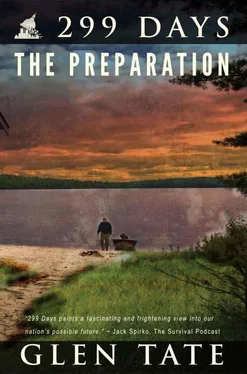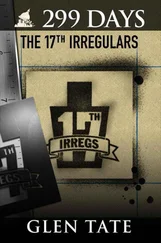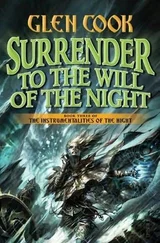Glen Tate - 299 Days - The Preparation
Здесь есть возможность читать онлайн «Glen Tate - 299 Days - The Preparation» весь текст электронной книги совершенно бесплатно (целиком полную версию без сокращений). В некоторых случаях можно слушать аудио, скачать через торрент в формате fb2 и присутствует краткое содержание. Город: Augusta, ME, Год выпуска: 2012, ISBN: 2012, Издательство: PrepperPress, Жанр: sf_postapocalyptic, на английском языке. Описание произведения, (предисловие) а так же отзывы посетителей доступны на портале библиотеки ЛибКат.
- Название:299 Days: The Preparation
- Автор:
- Издательство:PrepperPress
- Жанр:
- Год:2012
- Город:Augusta, ME
- ISBN:978-0615680682
- Рейтинг книги:3 / 5. Голосов: 1
-
Избранное:Добавить в избранное
- Отзывы:
-
Ваша оценка:
- 60
- 1
- 2
- 3
- 4
- 5
299 Days: The Preparation: краткое содержание, описание и аннотация
Предлагаем к чтению аннотацию, описание, краткое содержание или предисловие (зависит от того, что написал сам автор книги «299 Days: The Preparation»). Если вы не нашли необходимую информацию о книге — напишите в комментариях, мы постараемся отыскать её.
299 Days: The Preparation
299 Days: The Preparation — читать онлайн бесплатно полную книгу (весь текст) целиком
Ниже представлен текст книги, разбитый по страницам. Система сохранения места последней прочитанной страницы, позволяет с удобством читать онлайн бесплатно книгу «299 Days: The Preparation», без необходимости каждый раз заново искать на чём Вы остановились. Поставьте закладку, и сможете в любой момент перейти на страницу, на которой закончили чтение.
Интервал:
Закладка:
“Handing you what’s been marked Exhibit 23,” Grant said in the mock trial to the witness, “can you identify this?”
“It’s a drawing of the gun,” the witness said. It was a lowbudget mock trial so instead of a real gun for an exhibit, they just had a drawing of it.
“Can you look at the drawing of the right side of the gun?” he asked.
“Yes,” the witness said.
“Now please look at the left side,” Grant said to the witness.
“Do you see anything that looks like a little lever?”
“Yes,” the witness said.
“In the picture, do you see that little lever on the right side of the gun?” Grant asked.
“No,” the witness said. “It’s only on the left side.”
“Thank you,” Grant said with a grin. “No further questions.”
Everyone looked surprised. Was that the end of the questions?
He hadn’t proven anything.
Grant then said to the “judge” (played by the professor), “Your honor, I move to dismiss the charges because I can prove the defendant is innocent.”
“Please do,” said the judge, with disbelief in her eyes. Grant was enjoying this. “Your honor, the safety is a little lever,” he explained since this professor had probably never touched a gun in her life.
“It is on the left side of the gun,” Grant said. “It is impossible to click off the safety on the left side with your left hand. A person’s left thumb can’t get over the frame of the gun to click it off. It can only be done with your right hand.” He demonstrated with his hand.
The gunman could not have used that gun with his left hand.
Either the witness was lying or that gun wasn’t the one used in the crime. Regardless, that was a reasonable doubt and it meant that his client would not be convicted.
Grant was so proud of himself. An innocent man was set free in this mock trial. Grant, the hillbilly from Forks, had outsmarted all the smart people from places like Bellevue. All because Grant had actually shot guns and knew that you could only use your right thumb to click off the safety on a Smith and Wesson semiauto.
The professor thought about it and agreed that the defendant was innocent. Grant expected a discussion about how important it was to review the evidence and to think on your feet. However, what came next shocked Grant.
“What are some reasons why handguns should be banned?” the professor asked the class. What?
A discussion of gun control—a one-sided discussion of the entire class versus Grant—went on for the rest of class. No one said, “Hey, Grant, way to go on solving the mystery. Glad your life experience led to an innocent man not going to prison.”
Grant could not believe it. What a bunch of impractical pricks.
That about summed up his view of law students.
There was one exception—Bill Owens. Grant first noticed him because he heard something from him that no one else had at the UW Law School: a Southern accent. Grant got to know him and found out he was an Army officer attending law school part-time. Military and from Texas—two cool points in Grant’s book. But, they were two definitely uncool points in the book of everyone else at the University of Washington Law School.
Bill Owens was the only friend Grant had in law school. They hung out a lot because, well, they were the only ones who would hang out with hillbillies like them.
Bill and Grant were different than most students in another way: they worked. Bill was in the Army full time. Grant worked at the state Attorney General’s Office all during law school. Good résumé material. It was part of his plan to be a successful lawyer; to be the exact opposite of the Forks loser. Grant worked about twenty hours a week and had a full course load. He was used to it. In fact, not working would have seemed weird to him. He learned a lot of practical skills as a law clerk at the Attorney General’s Office. He was learning how a government agency made decisions and what motivated them.
Grant’s favorite class, in one sense, was Constitutional Law. He loved the Constitution. What a magnificent and brilliant document. He didn’t know why, but he innately understood the Constitution. It made absolute sense to him.
But Constitutional Law was taught by a socialist; a female professor who really seemed to hate men, especially men who disagreed with her. God forbid someone challenge her; that would lead to viciousness as Bill found out one day.
“Mr. Owens,” the professor said in a condescending tone, “please describe the holding in City of Richmond v. J. A. Croson Co.”
This was a case that held that reverse discrimination—in that case, a mostly black city council passing an ordinance giving racial preferences to minorities based on past racial discrimination—was unconstitutional. It seemed that a group of black politicians was enriching some black-owned businesses. White politicians had been doing the same for white-owned businesses for years, but that didn’t make it right. Racism was racism.
Bill explained in a matter-of-fact tone, “Croson held that racial preferences based on past discrimination can instead be unconstitutional race discrimination when there is evidence that past racial discrimination is no longer present. The court held that government must be color-blind, neither against racial minorities nor for them. Just neutral.” That was exactly what the case held.
“Oh, color-blind,” the professor said, dripping with sarcasm. “I notice you seem to have a Southern accent, Mr. Owens. It doesn’t surprise me that you think ‘color-blind’ means taking away opportunities for racial minorities.”
The message was received by the whole class. The professor was a hater and it was easier to just let her do her thing. She had the power, and one better not get in her way. It was pretty obvious that she picked out the one Southerner in the class for her demonstration of power.
Bill was unfazed. He went on to give a great defense of how the Constitution required color-blindness. But it didn’t matter. His “class participation” grade, which was a third of his grade, was zero and he got a mediocre grade in the class, despite doing very well on the written test (which was graded anonymously).
This demonstrated to Grant that the left-wing people running everything were intolerant bullies who had some deep hatred of people like Bill and Grant.
Then it hit Grant. He wanted to be a lawyer to fight bullies. Lawyers could sue the government when they hurt people. Lawyers could sue big business, big labor, big anything on behalf of the little guy. In that moment, Grant knew exactly what he was going to do with his law degree.
This was reinforced when a federal judge gave a speech at an event Grant attended. The judge, who was appointed by Reagan, was not invited to speak by the law school. A private group, the conservative and libertarian Federalist Society, invited him to speak.
The judge’s speech was on how lawyers can fight bullies. The judge said, “When you boil it down, the law is about protecting people from other people trying to take advantage of them. The law is about protecting people’s liberties and rights.” This made complete sense to Grant; it explained everything about the law.
This is what he was supposed to do. Grant had found his purpose. He wanted to be a judge; or at least a lawyer who fought bullies.
Chapter 7
Olympia
Grant and Lisa had opportunities to relocate just about anywhere in the U.S., but they wanted to stay in Washington State. They loved it there; the beauty of it, and the generally laid back people.
Lisa quickly found a job at a Tacoma hospital. Grant needed to find a lawyer job in Tacoma or nearby Olympia, which would be hard for him. Not because he had a bad résumé, but because he was “conservative.” Washington was not a hospitable environment for conservatives.
Читать дальшеИнтервал:
Закладка:
Похожие книги на «299 Days: The Preparation»
Представляем Вашему вниманию похожие книги на «299 Days: The Preparation» списком для выбора. Мы отобрали схожую по названию и смыслу литературу в надежде предоставить читателям больше вариантов отыскать новые, интересные, ещё непрочитанные произведения.
Обсуждение, отзывы о книге «299 Days: The Preparation» и просто собственные мнения читателей. Оставьте ваши комментарии, напишите, что Вы думаете о произведении, его смысле или главных героях. Укажите что конкретно понравилось, а что нет, и почему Вы так считаете.











